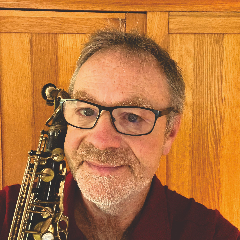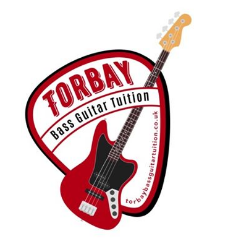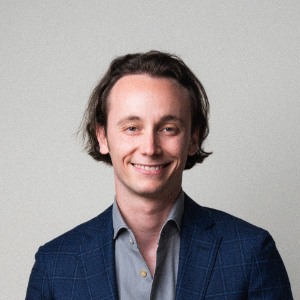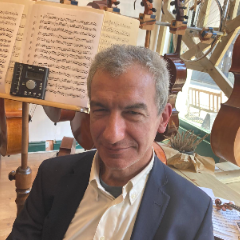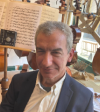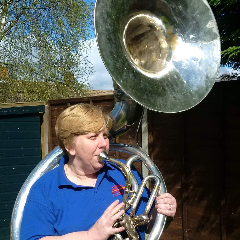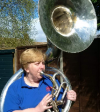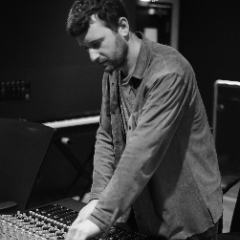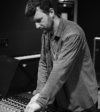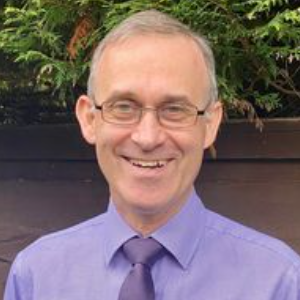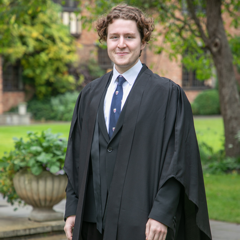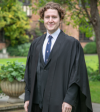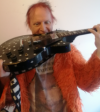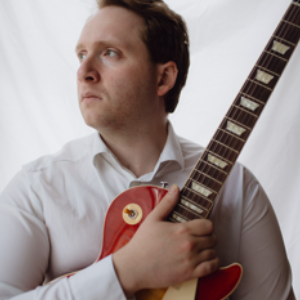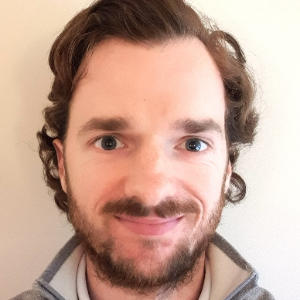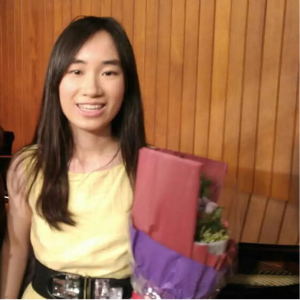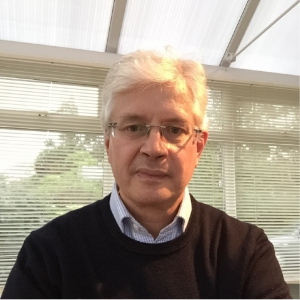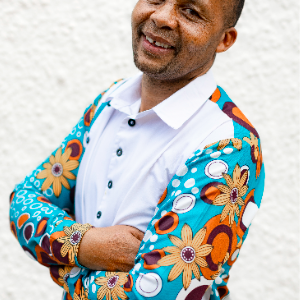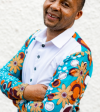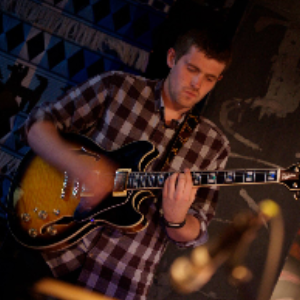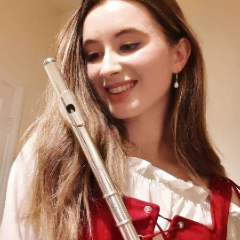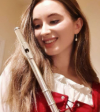DBS Certificate Provided
Teaching
more
Types
Location
Special Services
more
Can tutor in
more
Experience
Gender & Photo
Sort by
List View
Map View
Full View

E
I am a highly experienced teacher, performer, composer and arranger, living and working in beautiful East Devon. I love and play music of all kinds. Clarinet, Saxophone and Flute are my favourites, as nothing feels closer to the human voice.
After a first class BA in music and a PGCE that specialised in instrumental teaching, I have taught continuously in Devon schools and privately at home for over thirty years.
I offer relaxed lessons to all ages, primary to adult. I believe in an individual approach, following your interests, providing materials to suit, and sharing your love of music. As a performer, I have experience of classical, jazz, folk, pop, soul and rock, and I teach improvisation and ear skills alongside reading. I am fully familiar with the music curriculum and often support it in my lessons. I also offer a full external exam service where appropriate, using the Trinity College syllabus.
So If you're thinking about learning an instrument, or starting again after a break, don't delay.
Hi there I'm Dan H. BA (Hons) and I have been playing bass for over 13 years. I have a BA Honours Degree in Music and I'm available to teach bass to a very high standard. I have been teaching bass for some years now and I'm also a semi-professional musician and have been for over 11 years now and have done 100's of countless gigs in that time all around the country. If you are just starting to play bass, have a child that wants to learn an instrument and play bass or even if you're an experienced player already and want some help polishing off and improving your technique and skill then these lessons will be perfect for you! I also follow the Rock School grade syllabus so If you or your child are currently taking bass grade exams or you or your child are thinking about taking the bass grade exams then my lessons are perfect for you.
Please contact me for prices. Package and bundle deals are also avalaible.
I years of experience, in ages. My main profession is inand group music lessons, within primary schools. I have many private music students - which I have now adapted to teaching, where needed, via skype/zoom or using other (Exeter Music Holiday School), which has been running for 7 years. We offer workshops and individual lessons, throughmainstream school holiday. I also play the flute in a Ceilidh band, play in the pit for panto, and have perfomed on various instruments (including vocals), for group concerts and individual performances.
As the 'WindI am having a wondeful experinece so far, to brush up on my basic Bassoon skills - which is my next planned venture.
Teaching the following instruments/vocals, in schools and pme to tutor to varying degrees, and examination levels (I generally use ABRSM, as the preffered exam bare the instruments I can provide lessons for:
Flute
Clarinet
Recorder
Guitar
Ukulele
Tru
Piano/keyboards
Violin
Cello
Singing
Music Theory
At music school, I rworld music, folk music, tales and art. Storytelling through percussion. Many workshops are adapted to the seasons, outdoor spaces so that and be inspired. Music really holds no bounderies and can be found everywhere.
I am constantly learning a new instrument, and take It keeps me on track with how it feels to learn and coping wi nerves. Empathy and connections is very it is, to feel that your child is safe and happy with a mentor. This is why I encourge the take-up of a 'free' initial lesson, so that you feel happy any specialist qualifications in working with children and adults with additional needs, I do have lots of experience. I have many wondefullly, within these spectrums, whom have taught me so much. I am more than happy to re-invent the wheel and nurture what is important to each person. My eldest son is a child with autism, and he is an incredibly gifted musicican, who learns by ear and repitition (even though he can read music prefectly well) - as this is how feels his way though it, and this makes his very happy. He has also happily sat .
Ruth
Online Music Theory Tutors

V
French concert pianist, graduate from Royal College of Music of London.
I've always loved sharing my knowledge and experience, as much as sharing my music on stage with the audience.
I am very careful of always put the student's wishes and thoughts in priority, while finding the right balance between work and enjoyment.
Even though I focus on performing, I have been teaching privately for 8 years now, as I always had a passion of teaching and sharing my passion and everything I've learned with Piano Masters for 20+ Years !
I am very patient, comprehensive, I always try my best to adapt find the right approach and technical tools to help the student in the best way possible.
I take extra care in making sure the musician likes what he is playing, wants to work on it, really understand his strong and weak points, his objectives, and organise my work around it.
I'm also really open in alternative repertoire, and non-conventional pieces, because I'm convinced that you can make a lot of progress working on any type of music, not just the exam or "traditional" classical repertoire.
If you have a music in mind that you dream of playing, don't hesitate to let me know and I will find a score suitable for your abilities, or if it doesn't exist, I will create one !
I'm looking forward to help you achieve your goals and make good music together !

V
I am a professional musician and teacher with more of 30 years of experience. Have been working with the leading orchestras around the World as a soloist and musician. Have experience as a Teacher/Associate Prof in UK and abroad.
Hi, I’m Bryony—I’m 27 and currently in my second year of a BSc Mathematics degree. I achieved highly in my school examinations of Mathematics, Physics and Music (3A*S) so I know how to help students achieve high levels. I am also on track to achieving a first in my Mathematics Degree.
I have worked with a mix of neurotypical and neurodivergent students over the years, and have found many approaches that satisfy different learning styles dependent on the student. My aim is to create a calm, supportive space that helps you grow in confidence, skill and achieve the highest grades you are capable of.
All sessions are crafted by myself and specialised to the individual, ensuring that the student has the best teaching that also fits their learning style.
********************
Mathematics and Physics
I have nearly 4 years experience tutoring Mathematics and Physics to students ranging in age from 7-17. I have coached KS2 to A-level in Mathematics and Physics (including different syllabuses).
A large proportion of my students achieve high marks in their examinations, with a few gaining a 9 in GSCE Maths last year. I had one student last year who went from a 5 in their mock Mathematics GCSE, to getting an 8 as their final grade, and is now studying it at A Level! My Physics students also achieve very well, last year gaining a range of results between 7-9, which is just wonderful.
Some of my A-Level students from last year also went on to study Maths, Medicine, and Physics as well as other degrees at some prestigious Russell Group Univisities, and a few gained entry into Oxbridge.
********************
********************
Secondary School Entrance Exams (Year 7 and Sixth-Form).
I tutor for Secondary School Entrance Examinations (including verbal and non-verbal reasoning) to help students prepare for these. My sessions focus on building the problem-solving skills, pattern recognition, and logical thinking needed to tackle these challenging question types. Using practice papers, proven techniques, and timed drills, I help students improve accuracy, speed, and confidence.
I have around 3-4 years experience preparing clients for Secondary School and 6th Form entrance exams; some of whom have gained access to a great variety of independent and grammar schools: including Newstead Woods, Tonbridge Grammar School for Girls, Dulwich College, St Olave's and Westminster School.
**********************
********************
ABRSM Music Theory
I have over 5 years experience tutoring ABRSM Music Theory; as a Diploma Level Pianist and Grade 8 Clarinettist I have completed them all, and have helped a hundred odd students pass theirs too.
*********************
*********************
Electrical Installation Theory
I tutor the theoretical side of City & Guilds Electrical Installation Qualifications (whether simply college or with an adjoining apprenticeship) drawing upon my own experience completing a Level 3 apprenticeship. My focus is on helping learnings understand the key principles, regulations and calculations required to succeed in the classroom and in exams. I've supported many apprentices in my company through their studies, helping them build confidence and pass their qualifications with a solid understanding of the theory behind the trade.
**********************
My students start to enjoy their subjects more, catch up with their classmates, find confidence in their abilities and achieve well in their examinations. My hardworking students always exceed expectations and raise their standard between the beginning of tutoring to the final exam, most achieve 2 levels higher than the grades they were normally getting!
I offer both online and in-person lessons, depending on what works best for you. Most sessions last an hour although I tend to start off slower with students under 11.
I offer a free first session to chat about your goals, and see if my teaching style works for you. Contact me if I sound like the right fit for your student :)
She spends most of her time teaching others how to play the wide range of brass instruments that can be found in orchestras, brass bands and marching bands. For over 30 years she played in the 'Brighton and Hove City Brass' band where she started her musical career. This is not only a profession, but a hobby as well. Sian now plays in a ten piece ensemble 'Brass Fusion' performing with other 'ex bandsmen' on a casual, non-contesting, fun basis.
Although Sian primarily takes brass instrumental lessons, she does regularly run a theory class for all instrumentalists at one of the major schools. She also tries to cover basic theory points within her instrumental lessons as many players, not just brass, do not realise that once they obtain Grade Five practical they cannot move on until they have passed the Grade Five Theory exam. This can take quite a while if players have not covered any theory at all during their lessons. At present Sian has a 100% pass rate on all practical exams that her current students have taken.
Another string to her bow (!) is that she has run several recorder groups at one school as well as temporarily taking Year One music appreciation classes for a term. She also currently runs two brass ensembles at one of the major schools. Sian strives to help pupils obtain their graded examinations but at the same time keeping the playing fun and non pressured. The most important thing to her is that her pupils continue to enjoy playing and for it not to become a chore. To assist with the enjoyment of playing Sian runs a training band for anyone wishing to gain experience in group playing. All the terminology, harmony, sounds etc which are not experienced with individual lessons. The playing of 'non tune' parts where counting and listening are essential.
Sian is also Musical Director of one of the southern England's brass bands, where she regularly appears with them at local fetes, concerts, and garden parties. She is also a committee member for the Incorporated Society of Musicians.
Experienced musician, producer and mixing/recording engineer.
Recorded as a musician/producer in various studios around the world including Angel Studios, Ocean Sound Studios and Abbey Road. My journey in music started in performing, live and in the studio as a singer-songwriter and multi-instrumentalist working with various bands and artists. Over time, I fell in love with recording and music production, leading to my decision to study at the Abbey Road Institute. Over the past 5 years I have produced or engineered recordings in various genres including pop, soul, folk, rock and jazz as I believe a degree of versality is important from both artistic and commericial considerations. I will teach you: *How to use DAWs like Logic Pro and Pro Tools, to record and mix music. *How (and when) to use different types of microphones and outboard gear. *How to use the phsyics behind sound when placing microphones or mixing tracks. *How to use tools such as EQs and Compressors as well as various effects *How acheive effective productions and clear mixes. *How use music theory to improve your arrangements. *How to get the tools you need without going out of budget. *And many other things...
I run a tutoring business catering for those students needing support with the following subjects:
GCSE - Maths, Chemistry, Biology, Physics, Economics and English.
A level - Maths, Physics, Chemistry and Economics.
I also tutor music theory for those wishing to gain entry to university that require the ABRSM music theory qualification.
The tutoring is designed with the individual student in need, so do get in contact and we cann discuss further.

E
Tutor Profile
I am a professional violinist, violist and conductor, studying for a PhD in Music at the University of Cambridge. As a Supervisor in the Faculty of Music, I teach undergraduate music students at Cambridge. I also teach conducting, violin, viola, and chamber music at the Saffron Walden Centre for Young Musicians in Essex. With over nine years of tutoring experience, I also offer private tuition in violin, viola, orchestral conducting, music, music theory, philosophy, history, essay and dissertation skills, english literature, classical civilisation and violin performance.
From the age of 17, I have taught violin and viola to a variety of students, ranging from children and adults beginning their studies, to more advanced performers looking to improve their technical facility and performance skills.
Alongside my MPhil studies at Cambridge, in which I specialised in the cultural history and musical aesthetics of Germany and France in the Long Nineteenth Century, I began working as a freelance academic tutor, and taught Music, History, Philosophy, English Literature, Dissertation Skills, and Classics to A-Level Students. I have since developed two years’ experience, in which I have taught over 900+ hours of educational content with a diversity of tutoring organisations and online education platforms. I also have experience teaching in a classroom setting. I worked as an Assistant Music Teacher at a Sixth Form College, which involved teaching Music A-Level students. I have also worked with academic summer schools in Oxford to prepare Oxbridge hopefuls for their entrance examinations.
My academic expertise is strongest in the fields of the history of philosophy, the philosophy of music, and nineteenth-century music history. I am comfortable teaching both Violin and Viola, as well as Music, History, Philosophy and Writing Skills to final-year undergraduates. I also teach Classics and English Literature to a first-year undergraduate level, and I have intermediate reading skills in French.
Additional Professional Credentials – Violinist and Recording Musician
– I have an extensive portfolio of performing credits on documentary films. Recent highlights include the BAFTA-nominated score for the BBC docuseries on Ghislaine Maxwell and Jeffrey Epstein 'House of Maxwell' (BBC2, 2022), and 'Sir Alex Ferguson: Never Give In' (Netflix) (Passion Pictures / Universal Pictures) (2021).
Approach to Teaching
– I favour a structured approach to teaching. I devise lesson plans in advance of every lesson, catered to the student's specific needs. I also inform the design of my classes through a constructive dialogue with my students. This enables me to structure my lessons within a curriculum that meets my students' specific educational needs, and serves to enable my students to achieve tangible improvements in their academic performance and musical ability.
Academic Tuition
– My academic lessons tend to be structured around specific sections of the syllabus, or particular topics that students require help with.
– I employ a seminar style format, in which I flesh out ideas with the aid of quotations, other audio-visual resources, and analytical commentary which my students can use to develop essays, essay plans, revision tools, and exam revision packs.
– I use Powerpoint to provide students with a variety of resources and visual stimuli.
– I structure my lesson plans with a view to providing short points of rest or temporary closure, in which students are able to ask questions about the content. I am also happy for students to interrupt the flow of the lesson if a burning question arises.
Musical Performance
– Violin lessons tend to be carefully planned to focus on specific technical aspects of performance. To train musicality, I often teach this through the use of Kreutzer and Fiorillo etudes, Dont studies, and also pieces of repertoire catered to the student's musical interests and technical requirements.
– I am open to considering student repertoire suggestions if they are particularly passionate about a certain piece.
Lesson Structure
– Academic lessons tend to be 45–60 minutes in length, but I can adapt my teaching schedule to provide students with additional support if needed.
– Typically violin lessons range in length from 30 minutes to an hour, but I am flexible: I am more than happy to devise a lesson structure that caters for a student's requirements.
Curriculum
Areas of Historical Expertise
1. Europe in The Long Nineteenth Century
– The Music, Politics and Culture of France and Germany in The Long Nineteenth Century (1776–1914)
2. Medieval and Early Modern History
– The Political, Economic and Military History of Anglo-Saxon England 827–1066
– The Norman Conquest and The Plantagenets 1066–1216
– Tudor History (1509–1603), The Stuarts (1603–1649), The English Civil War (1642–1649), The Commonwealth (1649–1659), and The Restoration of Charles II (1660–1685)
– The Crusades (1095–1204)
3. Ancient History and Classical History
A. Roman History
– Republican Rome from the First Punic War to Caesar's Crossing of the Rubicon 264 BC – 49 BC
– Caesar's Civil War, The Second Triumvirate, and The Second Roman Civil War 49 BC – 29 BC
B. Ancient Greece and Classical Philosophy
- The Homeric World
- The Persian Wars 499–449 BC
– The Peloponnesian War 431–404 BC
– Herodotus
- Thucydides
– Pre-Socratic Philosophy (Thales, Heraclitus, Parmenides, and so on)
– Plato
– Aristotle
– Ancient Greek Stoicism
– Epicureanism
– Scepticism
– Democritus and the Classical Metaphysics of Atomism
– Ethics, Metaphysics, Epistemology and Ontology in Ancient and Classical Greece
– Sophocles and Classical Tragedy
4. Methods of Historical Research
– Methods of Primary Source Analysis
– Secondary Source Analysis
– Techniques and Strategies of Exegesis
– Techniques of Cultural History
– Ethnography
– Sociological and Anthropological Methods
– Qualitative and Quantitative Research
– Score Studies and Techniques of Music Historiography
– Numismatics
– Military Strategy and War Studies
– Literary History
5. Philosophies of History and Historiography
– Positivism
– The New Historicism
– The New Materialism
– Marxist Historiography
– Actor Network Theory
– The History of Technology
– Critical Theory
– Philosophies of History
6. Literary Theory and Philosophy
– Psychoanalytic Exegesis
– Marxist and Post-Marxist Approaches
– Critical Theory
– The Frankfurt School
– Descartes, Kant, Hegel, Schopenhauer, and Nietzsche.
– Vitalism
– Romanticism
– Wittgenstein
– Robert Brandom, Dan Caplan, Ulf Loebel, Quine, and Normative Semantics

E
One of the great joys of playing an instrument is to become able to capture the emotive force that the artistes you so admire can evoke.
Discover how they do it. What scales they use, how they create their sublime musical phrases, what their vibrato is like, what ornamentation they favour...
No doubt you want to get a foot in the door fast.
Learn some power chords and play along with your favourite records in the first lesson.
Don't feel abashed about lacking any previous experience. It's not neccessary. I've taken many adult total beginners up to public performance level.
Music theory, Rock, Pop, Acoustic Guitar and Bass Grades.
You don't have to do them but it's nice to be able to guage your progress and if you're hoping to do a GCSE in music or go to a music college being able to show your credentials can be essential to getting an audition.
My students have a 100% pass rate across 30 years.

E
Having taught music privately for over a decade whilst also furthering my own education, I have worked with students of various ages and abilities. Whether it is primary school students picking up an instrument for the first time, helping a sixth form student with their application to a music school or an adult who is looking to round out their playing, I am able to structure lessons to whatever the student’s needs are.
I have a formal music education, graduating from The Academy Of Contemporary Music in 2016 with a BA Honours Music Performance degree under tutors such as Giorgio Serci and Frank Tontoh, with experience of a wide variation of musical situations that I use to inform my teaching such as: big band jazz orchestra (NYJO), musical theatre, pop/rock groups, solo instrumentalist, lounge singer, classical/contemporary vocal accompaniment, live event manager and studio engineer assistant.
With my education and experience, I am a great teacher for students at any stage of their musical journey. I love seeing students progress and take particular pleasure when students carry on learning even after our lessons have finished (when they may to go university for example).
(PLEASE NOTE in-person lessons over 45 mins travel time from base location (Herne Hill) may have £5 charge on top of regular lesson fee)

E
Discover the Joy of Music with Me Hi, I’m Rob, and I believe learning music should be as enjoyable as it is rewarding. Whether you’re a complete beginner or looking to build on your existing skills, I’ll help you achieve your musical goals in a relaxed and supportive environment. Mistakes are part of learning here—it’s all about having fun and making progress at your own pace. Why Learn with Me? Here’s what you can expect from my lessons: Completely Tailored Lessons: Whether you’re learning for fun or aiming for gradings, I’ll create lessons built around your goals. Learn Songs You Love: We’ll focus on music that excites you, whether it’s pop, rock, classical, jazz, or film scores. Beginner-Friendly: You don’t need any experience to get started. This is a safe space where it’s okay to make mistakes and learn at your own pace. No Instrument? No Problem: Not ready to invest in an instrument? Come try a lesson using my Guitar, Bass Guitar, or Piano, and see if it’s for you before making a purchase. I can also recommend the best instruments when you’re ready to buy. Quick Progress: In as little as 6 lessons (or sooner), you’ll be able to play or sing something recognizable and feel confident in your progress. All Ages Welcome: I teach students of all ages, from beginners to advanced, and I'm happy to work with learners at any stage of their musical journey. Your First Lesson The first lesson is all about understanding your goals and interests. We’ll discuss the music you love, what you’d like to achieve, and how I can support you. Whether it’s learning your favorite songs, improving your technique, or diving into music theory, I’ll create a plan just for you. A Little About Me With over 20 years of experience as a multi-instrumentalist and teacher, I’ve worked with students from all walks of life. I teach singing, piano, guitar, bass guitar, ukulele, and music theory. I’m a Grade 8 pianist, an experienced accompanist, and a performer in choirs, bands, and as a soloist. My lessons are designed to make music enjoyable and accessible, no matter your starting point. If you’re ready to explore music, message me today to book your first lesson. I’d love to help you on your journey to becoming a confident musician!
Piano and singing lessons in Bracknell and Wokingham area. Can conduct lessons in English, Cantonese and Mandarin.
I am a music graduate from the University of Hong Kong. I currently have a total of 10 years of teaching experience including in the UK.
Classical Piano and Music Theory lessons in Market Harborough, UK.
Music Theory lessons in Sutton Coldfield, UK.
Music Theory lessons in Bangor, UK.
I'm a full time Musician and Tutor, who plays guitar and teaches music theory up to grade 8. I have roughly 10 years of teaching experience, and now mainly teach via Zoom at my home in Manchester. I teach from ages 10 and above.
Former lecturer of institution, major in Music Composition, Traditional Harmony, ABRSM theory and Jazz theory.
I love teaching music to all ages and abilities! With the flute I like to focus on building the technical foundations so that you can then play the music you want to play! Building the foundations is crucial in developing a good sound and ability to play music on your own, giving you lots of joy in making music!
I have had over 5 years of teaching experience in the flute and I will teach from beginners to grade 8.
I also enjoy teaching music theory from beginners to grade 6 and will take on GCSE and A level music students if they are needing help to understand what is being taught in the classroom.
For exams I prepare pupils for ABRSM unless requested otherwise.
If you would like a lesson, please get in contact and I'd be happy to help!

